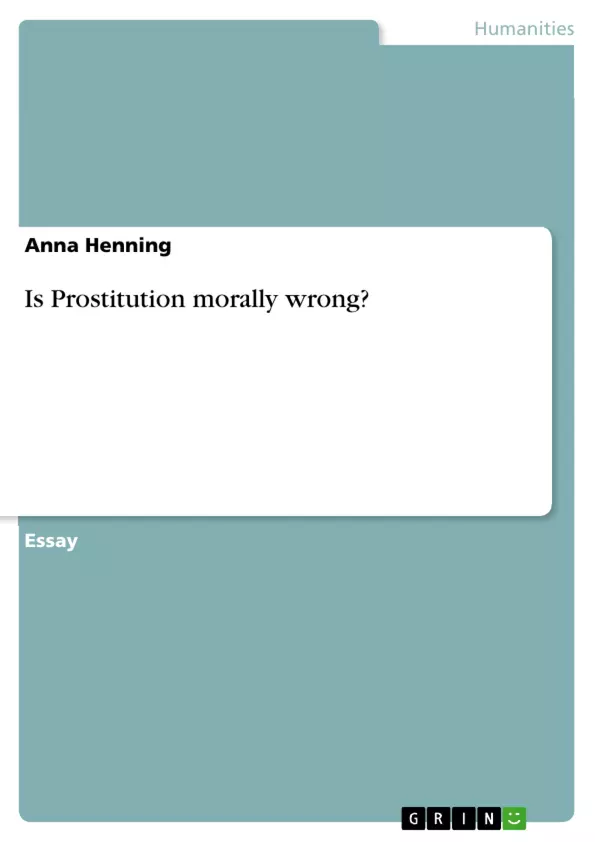Prostitution is the world's oldest profession and a common vice in our society. Prostitution comes originally from the Latin word "prostituta" and male or female persons can practice it. Male and female practice sexual activities in exchange for money or benefits like material things or a favor. A prostitute can be a woman but also a man, regardless of their age. Some people practice it long-term and some just on short-term (InformationPalour, n. d.) Nowadays in some European countries prostitution is legal and regulated, in some legal and unregulated and in some illegal. (Marian, 2017) Germany decided for example to consider it like other professions and established regulations, that allows citizens to be employed or self-employed as prostitutes. Other countries like Hungary or Latvia have a similar model, but in these countries, brothels are for example illegal. In Spain, Portugal or Poland prostitution is legal but unregulated. Also, there are countries, where prostitution is illegal. When a person in Sweden has sex with another person in exchange for money, the paying side commit a crime not the receiving side. Reversely, we have also the case when just the prostitute commits a crime, that is for example the case in Ukraine or in Croatia. (Marian, 2017)
Inhaltsverzeichnis (Table of Contents)
- Introduction
- What is Morality?
- Forced Prostitution
- Prostitution as a Choice
- Prostitution and Exploitation
- Is Sex Degrading?
- Prostitution vs. Dating and Marriage
- Customers of Prostitutes
- Conclusion
Zielsetzung und Themenschwerpunkte (Objectives and Key Themes)
This essay explores the complex moral question of whether prostitution is right or wrong. It examines the issue from multiple perspectives, considering the ethical implications for both prostitutes and their clients.
- The definition and scope of morality.
- The impact of coercion and human trafficking on the morality of prostitution.
- The role of individual choice and agency in the decision to engage in prostitution.
- The comparison of prostitution to other occupations and its economic aspects.
- The ethical considerations surrounding the clients of prostitutes.
Zusammenfassung der Kapitel (Chapter Summaries)
The introduction establishes the context of prostitution as a global phenomenon with varying legal statuses. The essay then delves into the concept of morality, referencing Kantian deontology and its relevance to the evaluation of prostitution. Subsequent sections examine the issue of forced prostitution, highlighting the ethical implications of human trafficking and exploitation. Another section explores the cases where individuals choose prostitution, discussing the motivations and potential consequences. The text also compares prostitution to other professions, questioning whether the act of selling one's body is inherently degrading. Finally, the essay discusses the ethical responsibilities of the clients who use the services of prostitutes.
Schlüsselwörter (Keywords)
Prostitution, morality, ethics, Kantian deontology, human trafficking, exploitation, coercion, individual choice, agency, economic considerations, social implications.
- Arbeit zitieren
- Anna Henning (Autor:in), 2018, Is Prostitution morally wrong?, München, GRIN Verlag, https://www.grin.com/document/1507034



